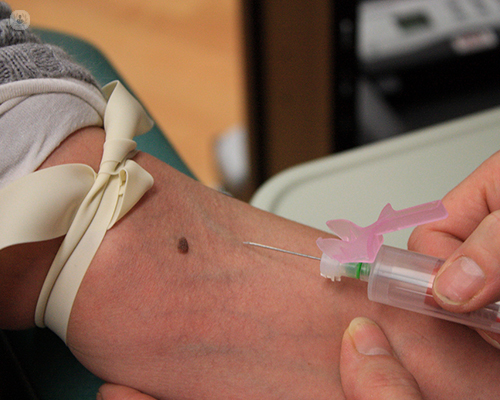


What is clinical biochemistry?
Clinical biochemistry is a specialism of pathology, which is the study of diseases. Clinical biochemistry attempts to diagnose and manage diseases through the analysis of blood, urine and other bodily fluids.

What does clinical biochemistry consist of?
A clinical biochemist will take a sample of bodily fluid, and test it in a laboratory setting. The results are then used to guide diagnosis and treatment decisions. The most common clinical biochemistry tests include:
- Blood sugar levels (helps indicate diabetes)
- Measuring electrolytes (this can indicate metabolic or kidney disorders)
- Enzyme levels within the blood (presence of certain enzymes can indicate heart problems, liver disease and certain cancers)
- Hormone levels (this can indicate whether any glands are performing properly)
- Lipid levels (can indicate cardiovascular disease)
- Protein levels (can help indicate nutritional or metabolic disorders)
Preparation for clinical biochemistry tests:
Certain clinical biochemistry tests will require a period of fasting, for example, having your blood sugar levels measures will require you to fast for up to 8 hours beforehand.
What to expect during clinical biochemistry tests:
If your urine is being tested, you will provide a sample by urinating into a sample cup provided by a nurse or doctor.
For a blood test, blood is usually taken from a vein in your arm, either at the inside of the elbow or the wrist. In children, blood is often taken from the back of their hand. A tourniquet is used around the upper arm to slow down the flow of blood and to allow the swelling of the vein. The skin is cleaned and a needle attached to a syringe is injected into the vein. The syringe then draws out the blood. Once blood has been taken, the needle is removed and pressure will be applied to the area for a few minutes. A plaster can be used to cover the wound.
What do abnormal results mean?
If the results of your test indicated anything abnormal, your doctor would use the results to either indicate further tests or scans or to make a diagnosis and hence treatment plan. Abnormal results may also be followed-up by more specialised clinical biochemistry tests. Some clinical biochemistry tests will be repeated to ensure there is no mistake.